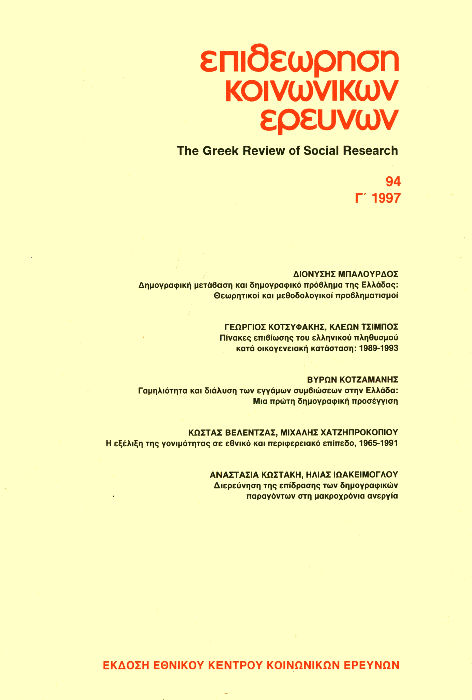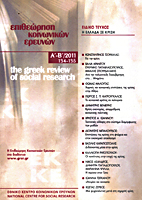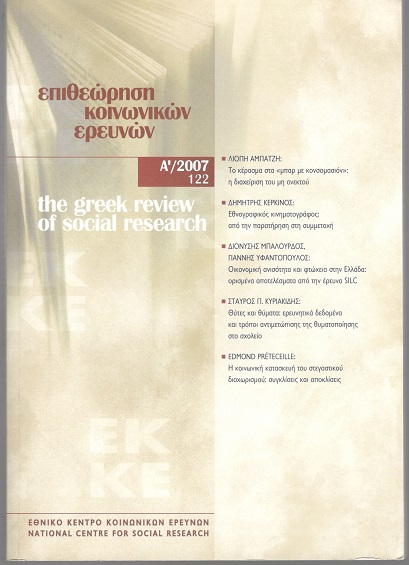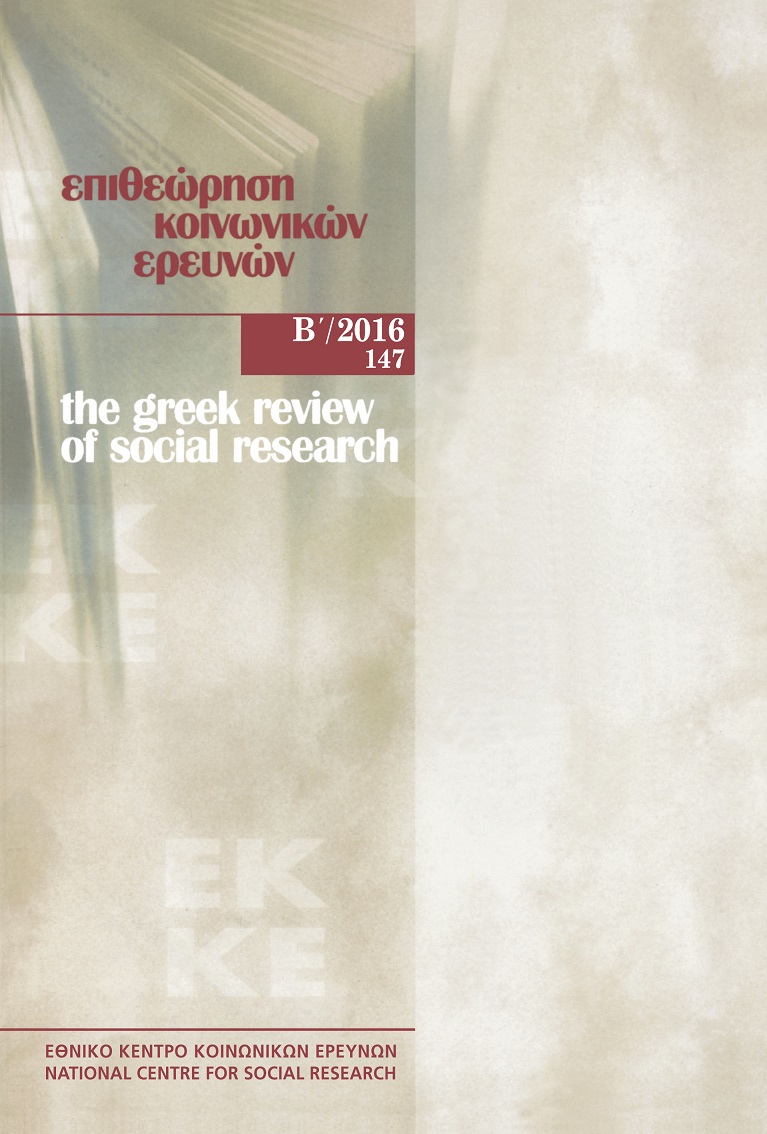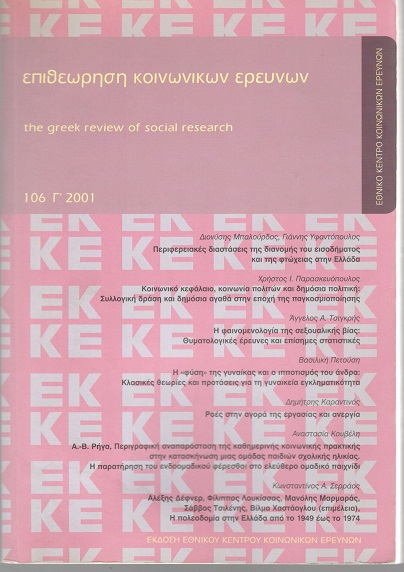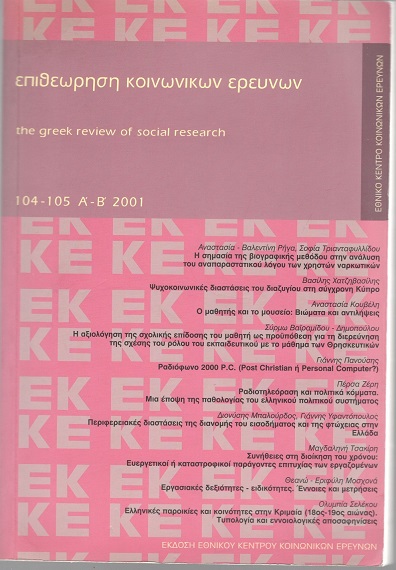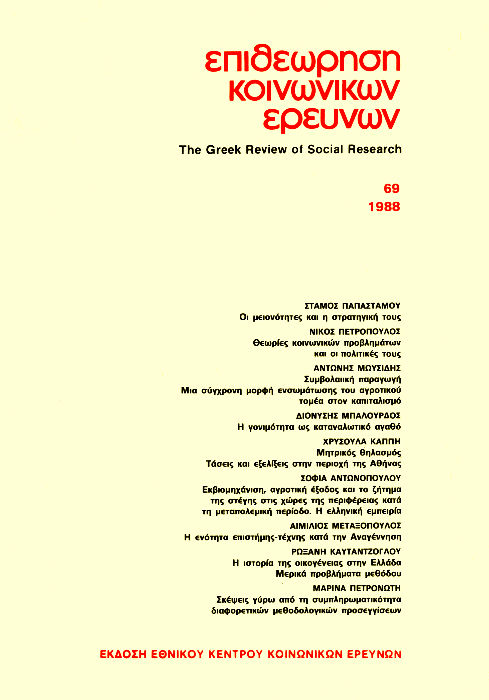Δημογραφική μετάβαση και δημογραφικό πρόβλημα της Ελλάδας: θεωρητικοί και μεθοδολογικοί προβληματισμοί
Abstract
This paper examines the basic mechanisms behind the historical changes of demographic behavior in Greece, within the analytical framework of the demographic transition theory. The several phases of the demographic transition are distinguished clearly and illustrated following a simplified classic diagrammatic presentation. Underlying clearly, Greece having experienced all successive stages of the classical demographic transition theory is currently faced with a new demographic situation, which is characterised by population aging and low fertility rate. These two distinct population characteristics constitute the core demographic problem in Greece.
The above mentioned characteristics were first observed in the early 1970s and 1980s, which coincide with the early phases of economic
recession and crisis.
Many scholars intended to be alarmists about the implications of
falling birth rates and demographic aging. Others, using different
population indexes and criteria, were more optimistic in their motivations,
calculations and predictions.
Article Details
- How to Cite
-
Μπαλούρδος Δ. (1997). Δημογραφική μετάβαση και δημογραφικό πρόβλημα της Ελλάδας: θεωρητικοί και μεθοδολογικοί προβληματισμοί. The Greek Review of Social Research, 94, 3–44. https://doi.org/10.12681/grsr.715
- Issue
- 1997: 94 Γ'
- Section
- Articles

This work is licensed under a Creative Commons Attribution-NonCommercial 4.0 International License.
Authors who publish with this journal agree to the following terms:
- Authors retain copyright and grant the journal right of first publication with the work simultaneously licensed under a Creative Commons Attribution Non-Commercial License that allows others to share the work with an acknowledgement of the work's authorship and initial publication in this journal.
- Authors are able to enter into separate, additional contractual arrangements for the non-exclusive distribution of the journal's published version of the work (e.g. post it to an institutional repository or publish it in a book), with an acknowledgement of its initial publication in this journal.
- Authors are permitted and encouraged to post their work online (preferably in institutional repositories or on their website) prior to and during the submission process, as it can lead to productive exchanges, as well as earlier and greater citation of published work (See The Effect of Open Access).

